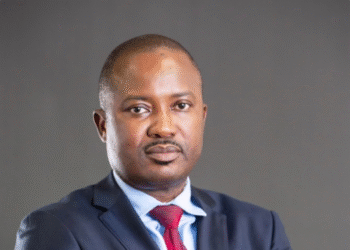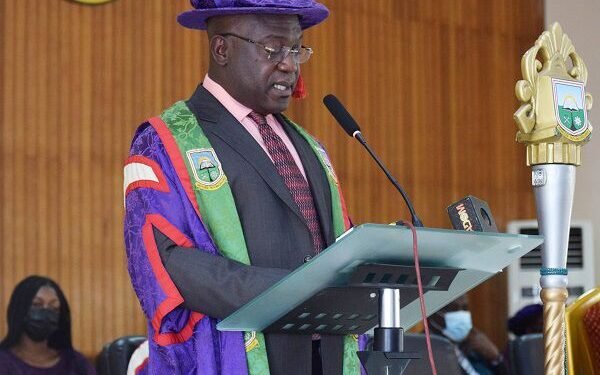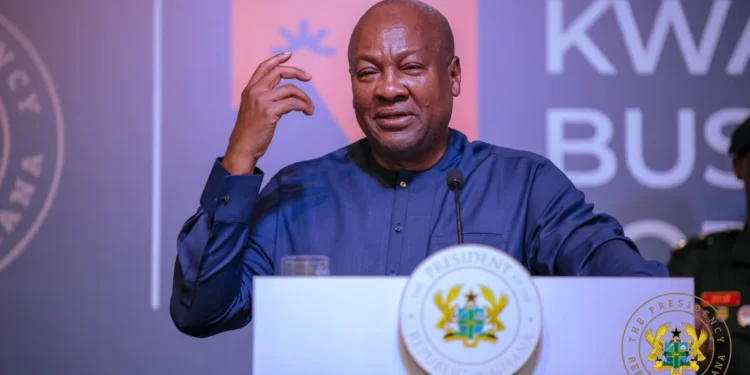The Chief Financial Officer (CFO) of Fidelity Bank, Mr Attah Yeboah Gyan has intimated that the speed with which banks will rewind their balance sheet restructuring to pre-pandemic levels will depend on the speed of recovery of the real sector.
This is on account of the extent of readiness or banks’ capacity to provide credit to businesses post-Covid-19. He noted that banks are prepared and willing to extend credit support to the private sector of the economy on the basis of a sustained recovery post-Covid-19.
He made these remarks speaking at the Money summit on Tuesday, May 25, 2021.
“… We [Banks] are going to reverse the balance sheet restructuring. The speed of that will depend on the speed of recovery in the real sector. Because, banks are in businesses of high leverage. And any small uptick in NPLs can wipe out your capacity to support the economy.
“And therefore, much as the banks are ready, we will be looking for signs of recovery and we [Banks] will be supporting the government in all of the initiatives that are aimed at revamping the economy, in terms of the programmes that the government has outlined; under the CARES programme; in areas of agro-processing; in areas of youth employment; and digitization… Banks are ready now to unwind, but the speed of that will depend on the rate at which we see the recovery happening.”
Mr Attah Yeboah Gyan, CFO Fidelity Bank
Banks lending to private sector during the pandemic
However, he opined that during the heightened periods of the pandemic last year, banks typically relied on the phenomenon of flight to equality. This means that bank’s restructured their balance sheets in response to the uncertainties with the pandemic. Thus, redirecting their assets to holding government securities which remains the highest equality. As a corollary, this led to the crowding out of the private sector.
Recent data on the banking sector development report unveils the prevailing structure of banking sector investments. According to the March edition, growth in banks’ investment holdings outpaced all other asset classes, with the majority of these investments in government securities.
Bank investments increased by 45.9 percent to GHS67.9 billion, compared to a growth of 7.2 percent in the prior year. Accordingly, the share of investments in total assets scaled up further from 36.3 percent to 44.7 percent over the review period.
He explained that gross loans to the private sector remained subdued, albeit this was a response by most commercial banks around the world. Per the BoG report, gross loans and advances for end-February 2021 grew at 3.6 percent compared to 26.0 percent in the same period last year.
“In a way, we [banks] supported the economy during the pandemic, but only through government and shying away from risky investments. And that was based on reduced demand for credit. Because businesses were rolling back their own plans and limited the opportunities for us to extend credit.”
Banks’ purchase of government securities
To corroborate, Prof. Bokpin, an Economist and Professor of Finance at the University of Ghana also intimated that banks will choose to buy government securities due to the government’s position as less risky.
“The government has signalled its borrowing requirement to the market through the fiscal deficit. In the local currency, the government is the best ‘person’ to lend your money to. In a pandemic setting were risk has become riskier, even if they [banks] were risk-averse ‘chickens’ or ‘venturesome lions’ they will choose safety.
Prof. Bopkin, UGBS, University of Ghana
On the other hand, Mr Victor Asante, the Managing Director of FBN Bank intimated that banks have kept lending to businesses, only that banks are being cautious about their lending activities.
“Banks are lending to businesses, we never said banks are not lending… just that banks are lending cautiously, and those who show that they need to be supported are always getting support.”
Mr Victor Asante, Managing Director, FBN Bank
However, he averred that there are certain problems that are gradually being resolved by the regulatory institutions to keep the banking sector in shape.
READ ALSO: Political unity in Africa, we are not there yet- Ivor Greenstreet























